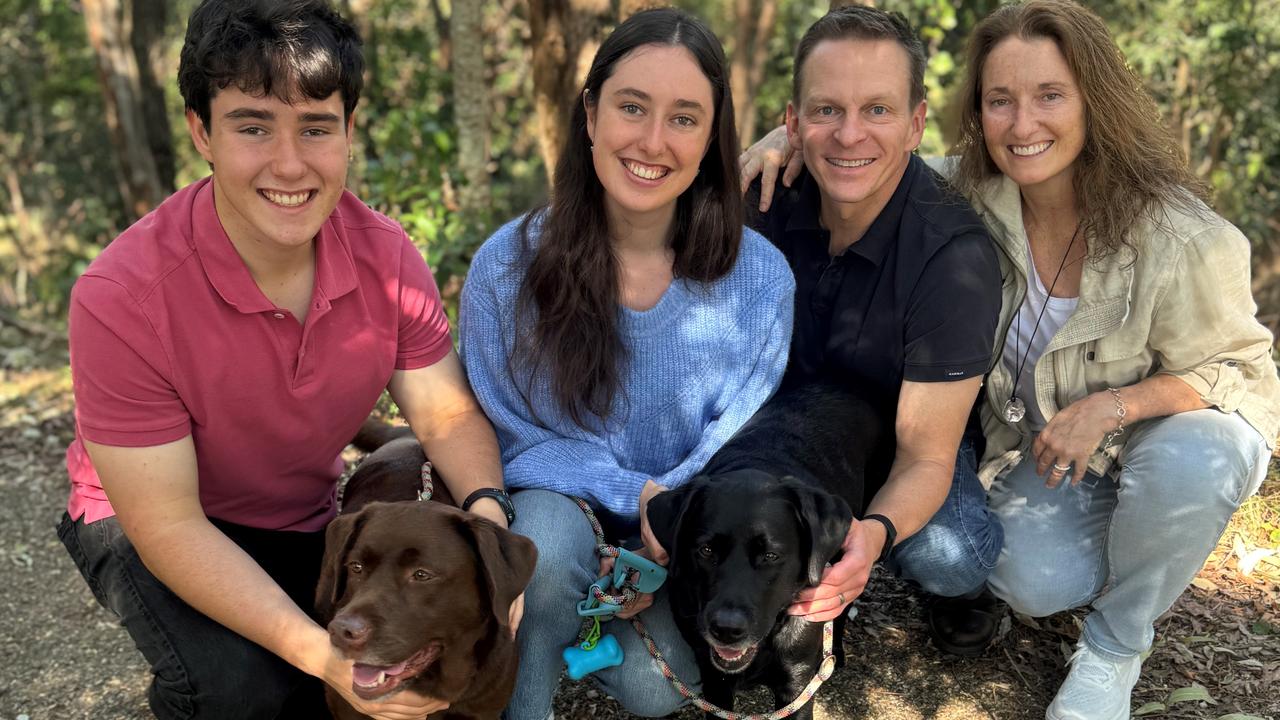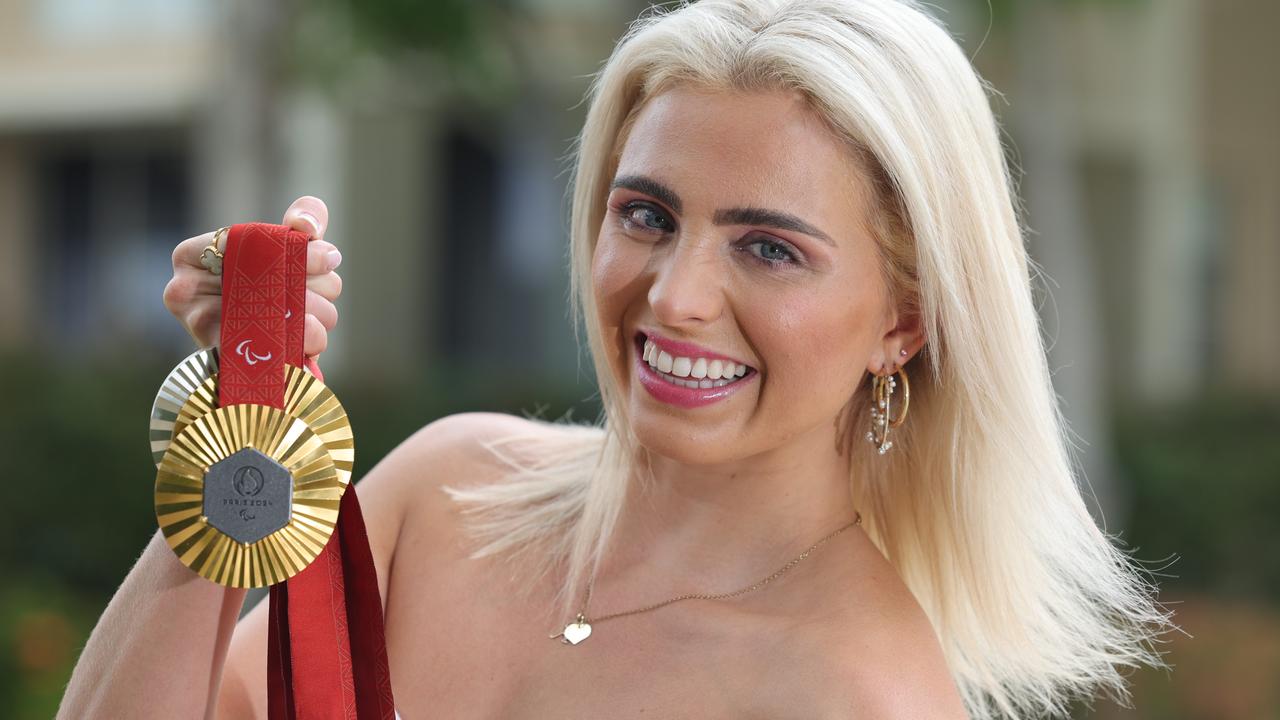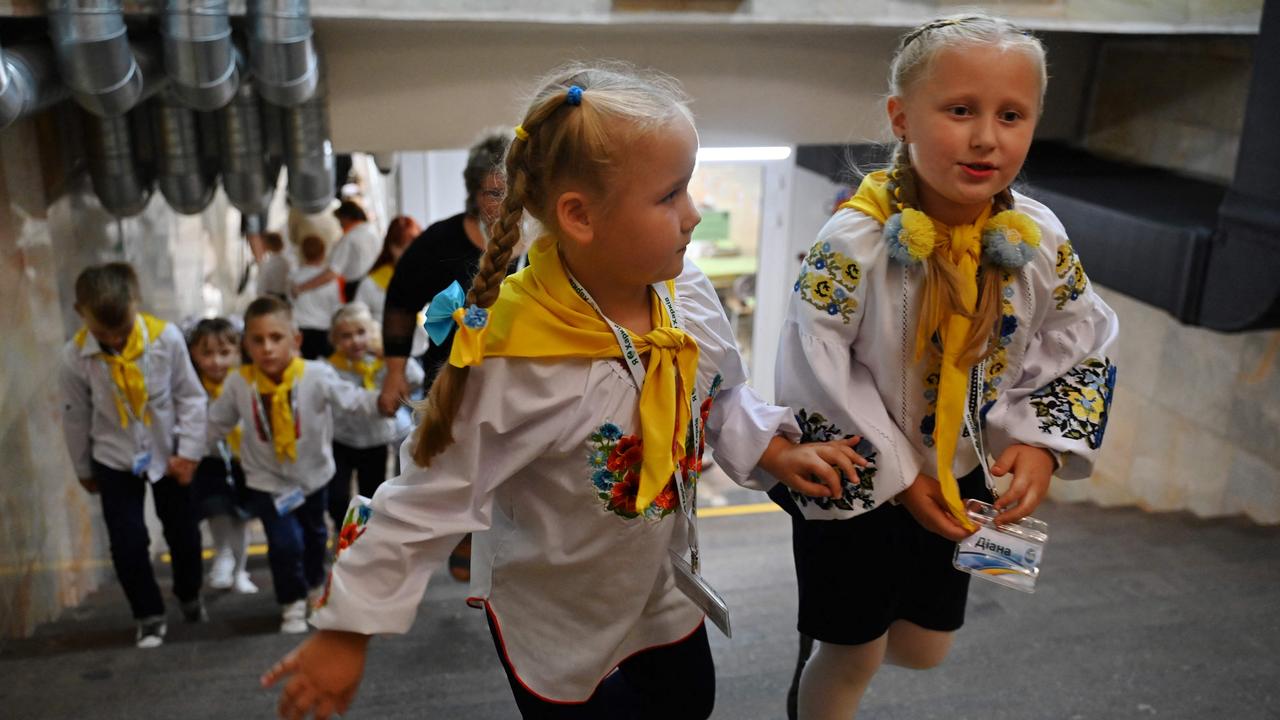‘Shock and disbelief’: Aussie mum, 41, had ‘no symptoms’ before horrifying cancer diagnosis
Amy Kenworthy was a healthy, active 41-year-old mum with no symptoms when a tumour was identified during a routine health check.

Everyone has challenges. Some you see, some you can’t.
For many, including me, resilience is what helps us through.
My story of resilience started in 2011 when I found out I had a rare and aggressive cancer.
I would end up fighting for my life through 11 years of treatment.
At the time of my diagnosis, my children were four and eight. I had just married the love of my life and had been promoted to the rank of professor.
Then I was told I had cancer.
My first reaction was shock and disbelief. I was a healthy, active 41-year-old woman with no symptoms – my tumour was identified during a routine health check.
The saying that “life is a precious gift” is never held more closely than when you are faced with death.
My second reaction, which hit not long after the first, was immense gratitude. I was so grateful it was me and not my children or husband.
My diagnosis and treatment changed everything.
I had to stop working. That was really hard.
I had seven major surgeries in the first two years, and I was away from my children way too much. It broke my heart every time I had to leave them.
I have a vivid memory of walking outside the Peter MacCallum Cancer Centre in Melbourne, wearing my hospital gown and a long jacket over the top.
My father had come to be with me while my husband was with our children on the Gold Coast.
I remember the leaves were blowing around us, it was autumn, and I felt hopeless after another failed surgery.
I cried deeply, sharing that I didn’t want to die.

I grieved my past life. I missed so many things I had taken for granted including the simplest of things like going for a walk with my husband and our dogs every evening before dinner.
I had to learn to be gentle with myself. As someone who had pushed hard to be a high achiever all of my life, that was hard.
I only had the energy to focus on two things: one, doing the best I could navigating life during treatment and two, being the best mother and partner I could be.
As part of this journey, I had to learn to push myself less and accept that just trying to do a bit more every day was enough. That part was also really hard.
In my third year of treatment, my daughter’s ballet school announced they were having a parent dance routine.
I ended up doing the dance in a wheelchair, rolling around the stage to the beat of the music along with the other parents dancing around me.
It was so special that I was able to be there for her doing normal parent things … things that in my pre-cancer life I might have tried to get out of because I was so busy.
Thankfully, the resilience which lifted me through those years is still with me now.
It grew out of an unrelenting gratitude, self-nurturing and kindness.
And yet mine is just one story.
There are so many stories of resilience. My current research is with educators in Ukraine who are actively teaching through war.
I am in awe of their resilience.
Their bravery, strength and ability to keep fighting for their people, their country and their independence is inspirational beyond words.
In another example, in recent weeks we have all been privileged to witness inspirational stories of resilience in our Paralympians.

I see people like Paralympic swimmer Alexa Leary (who overcame near-fatal injuries following a bike crash), sprinter Abby Craswell (who has cerebral palsy), swimmer Ahmed Kelly (who was born with underdeveloped limbs after being exposed to chemical weapons in utero) and Alistair Donohue (who overcame an accident at 15 which damaged both arms).
With these examples around us, we are left asking, what is resilience, and how do we get it?
A resilient person is someone who has strong coping skills and is able to marshal their available resources, ask for help when needed and find ways to manage the situation.
People with psychological resilience are able to use their skills and strengths to respond to life’s challenges, like the death of a loved one, financial issues, job loss, medical emergencies, ongoing health issues, natural disasters or war.
Resilient people do not experience less distress, grief, or anxiety than other people.
Instead, they use healthy coping skills to handle such difficulties in ways that foster strength and growth, often emerging stronger than before.
Fortunately, resilience is something we can build within ourselves.
Finding ways to realise who we want to be can help us live more fulfilling, meaningful lives in line with our core values, protecting us from stress and maintaining a more resilient outlook.
Focusing on hope and optimism and setting and working towards goals to build psychological capital are powerful approaches.

Caring for and believing in oneself are keys to resilience, as is acknowledging, rather than turning away from, the challenges we are confronted with.
Most importantly, research has shown us that resilience is enabled by strong relationships and networks. It’s our connections with people around us that help us become more resilient in our most challenging times.
I’m currently leading a study on resilience through war with colleagues from Bond and the Ukrainian Catholic University.
We found that of the 82 Ukrainian organisational leaders we surveyed, the number one thing they credited to their businesses’ resilience and survival was their people.
What we need from relationships to help us be more resilient will be different for everyone.
What we can learn from this is to spend time with those who help to strengthen us and recharge our internal batteries.
The strength we get from those relationships will help us be more resilient, and that helps us be well.
As I fought for my life through cancer treatment, those relationships were with my children and husband, my friends and extended family, and even my dogs.
They were all there to give me the hugs and love I needed every single day.
Amy Kenworthy is a professor at the Bond University Business School, and researches management, learning and education, as well as care and wellbeing in organisations
Originally published as ‘Shock and disbelief’: Aussie mum, 41, had ‘no symptoms’ before horrifying cancer diagnosis








